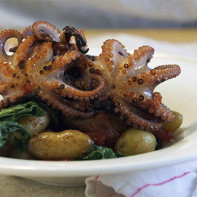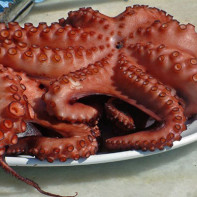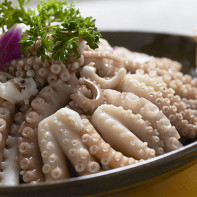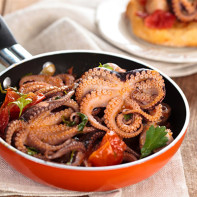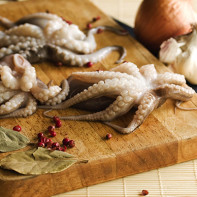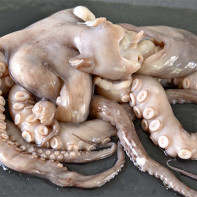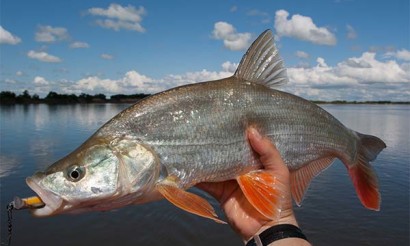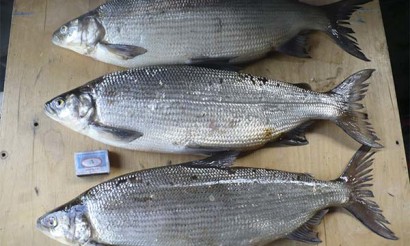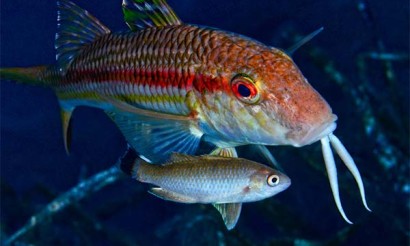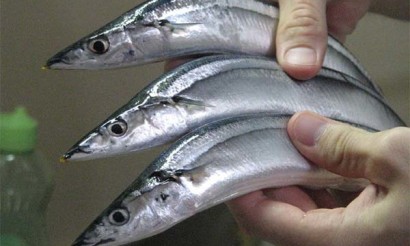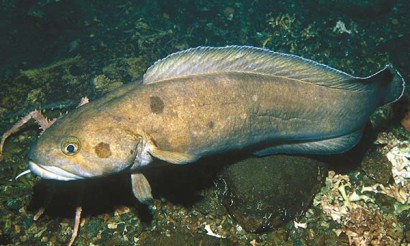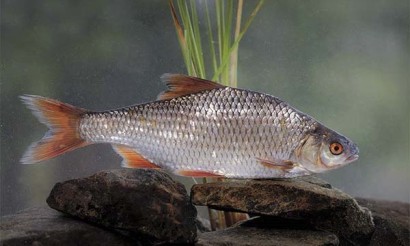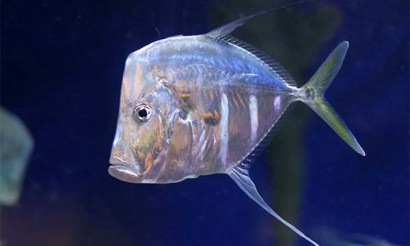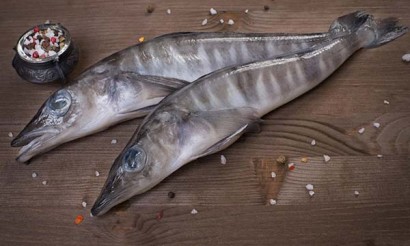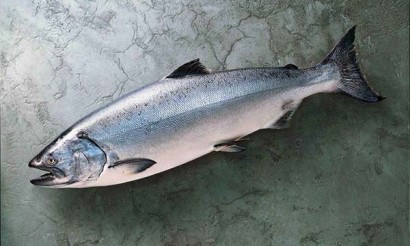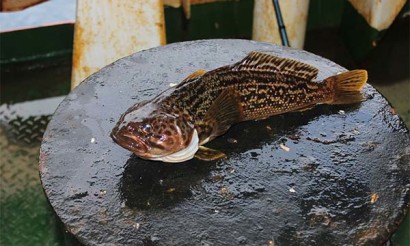Octopus: useful properties and recipes for cooking
Octopus is a many-legged creature, a predator that lives in the depths of the sea. The name - of Greek origin, translated into Russian as "eight legs". Octopus is a genus of cephalopod mollusks. Since ancient times, they have been regarded as monsters, attacking ships and taking them to the bottom. In fact, among the 300 species of octopus, none have such bloodthirsty tendencies.
- What is the difference between octopus and squid
- Composition and calories
- How to use octopus
- General benefits
- For Women
- For Men
- In Pregnancy
- For breastfeeding
- For children
- When losing weight
- Harms and contraindications
- How to choose and keep octopus
- How to peel the octopus
- How to cook octopus: Recipes
- Octopus in soy sauce
- Grilled octopus
- Fried octopus
- Stewed octopus
- Salad with octopus
- Salad for those who want to lose weight
- Octopus soup
- Octopus appetizer
- Octopus sandwich
- How to eat octopus properly
- Can you eat live?
- Can I eat ink?
- Can I eat octopus head
- Can Muslims eat octopus?
- Interesting facts about octopuses
The Mediterranean Sea and the Atlantic Ocean - the main places of "residence" of these marine creatures. The most prominent part of the octopus are his tentacles, reaching up to 90 cm, while the body is 25 cm or slightly more. The cumulative weight of an adult is about 10 kg.
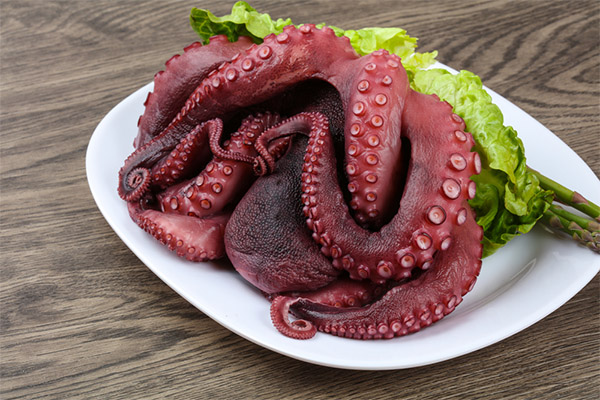
The lifespan of an octopus in natural conditions is mostly 2-3 years. But sometimes there are 4-year-old ones that can be considered long-livers. Its ability to change color reminds it of the earth chameleon. However, the color of sea creatures depends not only on the surroundings, but also on his mood. It determines the color of the octopus: fear makes him white, anger - red, and at rest he is brown.
The history of mankind has numerous proofs of the knowledge of ancient people about this creature and the use of its meat as food. After all, it, having undergone heat treatment, becomes appetizing, soft and tender, and in color - creamy or pinkish.
What is the difference between the octopus and the squid?
Although both sea creatures belong to the genus cephalopod mollusks, the difference between them is significant. The elongated, cigar-like body shape, the head separated from the body, and the greater number of tentacles (10 versus 8) are characteristics squid.
The octopus has a bell-shaped body with four pairs of tentacles. It prefers to crawl along the bottom of the sea, not hurrying, even floppy. Squid moves in the water column jerks like a rocket.
When hunting the octopus masterfully disguises itself, waiting for the right moment to attack. His opponent, on the contrary, is fast and swift.
Both cephalopods can change color, but for different reasons. In octopus color - an indicator of mood, and the squid - a camouflage to change in case of danger. It has an advantage over its counterpart: it can glow. Bioluminescence is the result of the mollusk's special organs.
Octopuses by lifestyle are solitary, ascetics, squids have a gregarious lifestyle.
Composition and calories
Octopus meat is consumed only after a good heat treatment. It makes it soft and tender, so it has many admirers. This product attracts with its abundance of vitamins, minerals, and low calories.
- Omega-3 is ranked first among the essential substances for humans with 350 mg. Plus the following: cholesterol - 48 mg, vitamins A, E, K, PP and B group, essential for human health. No less important among them is choline. It nourishes the brain and nervous system. B12 is the most important vitamin that helps the synthesis of DNA and myelin.
- Iodine, antioxidants, namely selenium, zinc, cobalt have a big part in the meat of this seafood. Selenium prevents the development of cancer cells, strengthens the cardiovascular system. It combines with vitamin E to create antibodies that help strengthen the body's immune system.
- A person who regularly consumes seafood, octopus meat, is not threatened by anemia, dermatitis, nail pathology, the growth of existing tumors. All this is counteracted by zinc. Its role in resisting infectious diseases and increasing the body's defenses is great.
- Phosphoric acid is the main building block of enzymes, through which chemical reactions occur in the cells of the human body.
- Cobalt contributes to the metabolism of fatty acids, carbohydrates and folic acid. It is necessary in the normalization of blood sugar, heart and blood vessels.
- Amino acids are glycine, lysine, valine, tyrosine, methionine.
- Glycine helps to reduce stress and increase mental abilities.
- People who suffer from frequent herpes rashes will be helped by lysine to fight the disease, and it also helps with protein digestion.
- Tyrosine is a fighter against a decrease in brain performance, depression and chronic fatigue, hypotension and vascular dystonia.
- Methionine protects the liver from pathogens.
The usefulness of octopus meat becomes more important due to another low caloric value - 82 kcal per 100 grams of product. The content of proteins, fats and carbohydrates in it is a little more than 18 g, where proteins occupy a significant part - almost 15 g.
A large composition of useful substances in the meat of octopus and low calories make the product popular not only among gourmets, but also among those who are concerned about their health.
How is octopus useful?
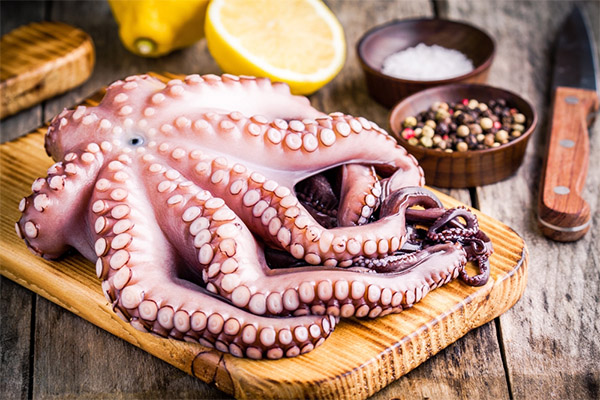
General Benefits
The usefulness of octopus is determined by its beneficial effects on human health:
- normalization of blood pressure;
- recovery of skin;
- satiation of energy (important for heavy physical labor);
- strengthening pancreas and digestive system;
- Combating tumors, aging, anemia, asthma, and bronchitis.
For women
The fairer sex, most concerned about the problems of prolongation of youth and skin condition, the octopus meat will be one of the first helpers. A woman's figure will get the shape she wants when she eats dishes from this shellfish. The meat is also good for the reproductive function of women.
For men
In addition to the beneficial effects of all the components of octopus on health, men will find an increase in muscle mass with the regular use of the product.
In pregnancy
For expectant mothers, the use of octopus meat in small portions is useful because of its huge content of omega-3 acids, vitamins and trace elements.
When breastfeeding
The period of lactation can not be a ban on the use of the product in food, if it does not cause a negative reaction of the body in the child and the mother. However, moderation in such food and the advice of a specialist will help to avoid serious health complications.
For kids
6-8 years old - the age at which such an exotic product, in the absence of an allergic reaction, can be extremely useful. Strengthening bones, tooth enamel, improving brain function - all this occurs under the influence of beneficial substances of octopus meat. The product is especially useful during the replacement of milk teeth by the indigenous ones.
The period of active growth of the child is a time in which the use of octopus meat is particularly welcome. The product helps in stimulating brain activity, strengthen memory, the development of intelligence of children.
For weight loss.
Due to its high protein content and low fat and carbohydrate content, octopus meat is ideal for those who want to lose weight without much sacrifice, for example, without giving up red meat.
The meat of this exotic mollusk is full of useful components that improve vision, remove water and fat from the body. Elderly people will find in it a product that helps in the treatment of atherosclerosis and in the prevention of Alzheimer's disease. Plus, they will appreciate its nutritional value, minimal calorie content and easy digestibility.
The problems with hypoxia can also be solved with octopus meat, because it is a kind of antioxidant, enriches the body with oxygen. The consumption of this seafood is not limited by the age of the consumer.
Harm and contraindications
Octopus meat is not an ideal product for general consumption. When after eating the dishes, there are rashes and pustules on the skin, nausea, vomiting and other signs of intoxication begin, the existing diseases are aggravated - most likely, that the person has an individual intolerance to the product.
Like all seafood, octopus should not be eaten after defrosting: there is rapid decomposition of protein, which leads to food poisoning. Octopus in its body is able to collect mercury and its compounds. Insufficient heat treatment leads to deterioration of vision, hearing, and the nervous system.
Cholecystitis, ulcers of the stomach, intestines, pancreas will worsen from eating clam meat. Reckless consumption of the product by pregnant women and nursing mothers can create problems with their health and the condition of the child.
To prevent octopus from becoming a source of health problems, you should be careful in choosing and cooking with it.
How to choose and store octopus
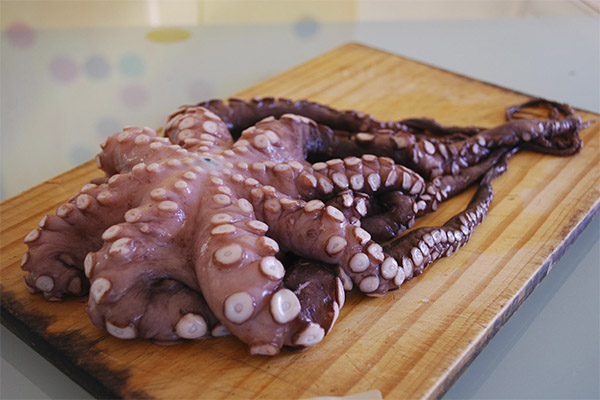
- The first sign of the freshness of the product is its smell. Fresh octopus should smell of sea fish.
- When choosing, you should be guided by its size: the meat of large individuals is usually tough and tasteless, while small and medium-sized, weighing less than 1 kg, - soft and juicy.
- When you buy an octopus, you should take into account its freshness. The eyes of the cephalopod will tell you about it: if they are transparent then it is worth buying, if they are cloudy then you should not take the risk. True, it is not always possible to find eyes, because a large octopus is sold in pieces.
- The body must be elastic. It is easy to check this: after pressing the hole disappears.
- Skin flaking from the octopus meat tells about its "not the first freshness".
- The light brown coloring is a sign of a successful purchase. The inside of the tentacles should be lighter than the outside.
- The tentacles of cephalopods should be clean and without blemishes.
- It is better to buy the whole carcass, not just the tentacles. This is a guarantee of product freshness.
- On the package with canned octopus should be clearly visible date, shelf life and a list of only necessary ingredients.
Fresh octopus, even frozen, should be stored for no more than three days in a vacuum pack. Further storage can lead to health problems. The raw shellfish must be boiled, cooled and only then stored in a vacuum pack in the freezer.
How to clean an octopus
- Running water will help clean the octopus from sand and dirt faster. The carcass begins with the head.
- Tentacles are separated from it with a knife. Then proceed to remove the eyes. Clean the inside of the head cavity. The rudimentary semblance of a beak is squeezed out and discarded. Everything is thoroughly washed.
- The skin of the octopus is usually removed after heat treatment. Boiling for 5-10 minutes is enough to remove the skin easily from the cooled carcass.
Left in the freezer for 1-3 days the carcass becomes softer because of the water left in the meat: it turns into ice and tears the nerves and muscle fibers.
A properly cleaned octopus carcass is a guarantee that the dish is safe.
How to cook octopus: recipes
Already in ancient times, people knew about the taste qualities of this mollusk. For example, it is known that in ancient Greece, the head and tentacles of an octopus stuffed with spices were considered an exquisite dish. The dish was baked and tasted like a pie.
Not only cooks, but also ordinary housewives know countless ways to prepare octopus. This seafood makes a great combination with onions, garlic, tomatoes, lemon, olive oil, rice, wine, and soy sauce. Gourmets and lovers of the product are no longer surprised not only by appetizers and salads with octopus, but also by the main dishes from this seafood.
Boiling, frying, stewing, marinating, stuffing, baking - all this variety of actions with octopus meat is available to any cook. They also make mincemeat from it and cook cutlets.
Different nations have their own preferences. For example, the Japanese love octopus with rice. For the Chinese, sauces come first. The Koreans can serve live octopus as a dish. Polynesians love dried octopus boiled in coconut milk or baked in an earthen oven. In Europe, this product is more familiar in batter and in soup.
Small octopuses are good if grilled. If you do not have them, you can do with large carcasses, pre-cut into pieces.
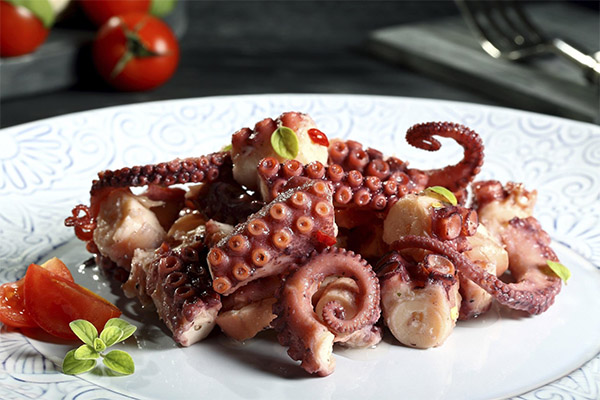
Take note! Chopped or slightly frosted before cooking the clam meat becomes especially soft.
Octopus in soy sauce
A dish with octopus in "union" with soy sauce, olive oil or wine vinegar will acquire a special and unique taste. Let's look at a simple recipe.
How to prepare:
- Dip slices (500 g of meat) in flour.
- Pieces of meat put on a hot pan with minimal oil. Cook for no more than 3 minutes.
- Take 2-3 cloves of garlic, finely chop. Then add 4 tbsp of cream, 80g of butter, 0.5 cup of water, salt, curry pepper (to taste) to the meat.
- Braise for 5 minutes under a closed lid over low heat.
Garnish with rice and season everything with soy sauce.
Grilled octopus
Put oiled octopus on preheated grill for about 10 minutes. The signal of readiness is the appearance of a blush on the meat. After grilling on both sides, serve with a sauce of grated garlic and olive oil with the juice of a squeezed lemon.
Fried octopus
Pre-cooked octopus, preferably of small size, cut into cubes and fry in boiling oil over high heat. Drain the water. Next, add a mixture of olive oil and a few cloves of garlic to the meat. Pour in some lemon juice to taste. After about a quarter of an hour, add pepper and any herbs. Serve hot.
Stewed octopus
This dish contains not only the octopus itself, but also boiled beans in the amount of one cup. Boil 2 kg of clam meat in water with one head of onion and 1 tbsp of vegetable oil for no more than 6-7 minutes. Separately prepare a vegetable base of 1 onion, cut into circles, 3 carrots, half a head of garlic. Fry in oil or lard until crisp. Add half a glass of dry white wine, 6 tbsp. of olive oil, bring mixture to a boil. Stir in the beans and chopped octopus meat, salt and pepper. Keep on the heat for 15 minutes, add the greens before serving. The dish is ready.
Salad with octopus.
This salad includes the following components: half a pound of seafood meat, 4 jacket boiled potatoes, 1 red onion, a dozen cherry tomatoes, pitted olives (about 60g), olive oil (about 5 tbsp), 1 tbsp of lemon juice and balsamic vinegar, 1 tbsp of liquid honey, lettuce.
Cut the boiled octopus into small pieces and the potatoes into cubes, then add the cherry tomatoes cut in half, the onion cut into half rings and the lettuce torn into pieces. Before mixing the ingredients, prepare a sauce consisting of vinegar, olive oil, lemon juice and honey. The salad is ready, it remains to add salt and sauce.
Salad for those who want to lose weight
Add about 300 grams of octopus chopped into small pieces to a saucepan, where 3 cloves of garlic have been fried for 2 minutes. After 5 minutes of stewing, add the cherry tomatoes cut into slices, about 200 g, 1 avocado and the same number of bell peppers, and the red onion cut into half rings. The final action is to dress the almost ready dish with a sauce in which chili and lemon juice are mixed in equal proportions.
Octopus soup
Foodies and fans of seafood dishes are familiar with Tunisian soup. To preserve the juiciness and tenderness of the meat, it is important not to allow it to overcook.
Fry in oil for a quarter of an hour diced 1 onion, 3 minced garlic cloves, finely chopped carrots and a bunch of celery. Pour half a cup of tomato paste into the oil and simmer everything for about 10 minutes. When the time is up, add the sliced octopus meat (1 kg) with water. It should be about two fingers above the level of the food. After boiling, reduce the heat, add spices. About 20 minutes before the end of cooking, add the coriander and wheat grits. Proceed to serve the soup on the table after the octopus meat is fully cooked. For this, it needs about an hour and a half.
Octopus appetizer
After boiling the clam meat for 35 minutes, leave it in the pot, covered with a towel, for about 20 minutes. When cooked and cooled, cut the meat into small cubes and place in the heated olive oil. Combine 2-3 cloves of garlic, 2 tablespoons of tomato paste, a couple of sprigs of rosemary, salt and red pepper to taste. Stirring, cook until the water is evaporated. The original appetizer, popular with Italians, is ready.
Octopus Sandwich
This snack is particularly popular in Greece. The best way to make this sandwich is with tentacles boiled for 20 minutes. Put sliced pieces of octopus in a pot with 300 ml of water. After 20 minutes of simmering, add 1 cup white wine. Then put chopped 250g olives, chopped 2 cloves of garlic, 1 cup of olive oil, 1 tbsp capers and 400g fresh cherry tomatoes in a pan. If canned tomatoes are used, it is better to add them at the end of the 30-minute cooking time. Finely chopped parsley and ground paprika add flavor and aroma. There is no need to salt. Place the mixture on slices of loaf, drizzled with olive oil and grilled.
Octopus meat is now becoming a popular product in the preparation of various dishes, even in landlocked countries.
How to eat octopus properly
The cephalopod mollusk has long ceased to be a delicacy for many nations. In Japan, sushi and takoyaki with octopus is the most common dish. The residents of Hawaii also adore it. Countless recipes with stewed, boiled, fried, salted, dried and even fresh octopus meat have been collected in the Mediterranean cuisine.
Is it possible to eat live
A popular dish in Korea is a dish of small raw, almost alive octopus. They are killed just before serving. Nerves are known to take a long time to die, so the motion of the tentacles doesn't stop for a while. Thrill-seekers can try the dish. But do not forget that the tentacles can stick to the esophagus. This is a deadly danger. According to statistics, the annual death rate from the love of such a dish is 6 people.
Can I Eat Ink.
On the belly of the octopus there is a muscle pouch, or simply put - the ink sac. It is used by the cephalopod mollusk to scare off enemies or paralyze the sense of smell of predatory fish. It pushes out a mixture of ink, slime and water.
Octopus ink poses no danger to humans. Many Mediterranean peoples use them to decorate dishes. But as food, they are not suitable.
Is it possible to eat the head of the octopus?
Yes, you can. It is more delicate than the tentacles, so it takes less time to cook. Lovers of exotic dishes have adopted from the ancient Greeks the method of cooking the head of the octopus with spices. It is stuffed with finely chopped herbs with various additives and baked in the oven.
Can Muslims eat octopus?
The Quran spells out everything that is allowed and forbidden for a Muslim. Octopus belongs to the sea animals, the eating of which is allowed. After all, the main book of Islam states: everything in the sea water, caught, alive or dead, is not forbidden for Muslims to eat.
This exotic creature is known as an interesting inhabitant of the sea depths. Equally famous is the octopus as a constituent in the recipes of many nations, where seafood is used.
Interesting facts about octopus
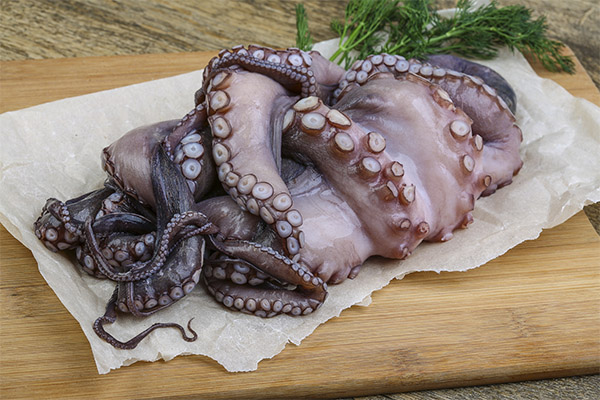
- This cephalopod mollusk is recognized as the most amazing creation of nature due to its body shape.
- Its skull has a bagel-shaped brain, but is completely devoid of any bones.
- The octopus's eyes are rectangular in shape.
- Although nature has endowed him with several ways of movement, the octopus mainly walks or crawls. It swims less frequently.
- All current octopus varieties throw up ink for protection. They can harm other sea creatures, but humans will not be harmed by them. The discarded ink cloud not only conceals the octopus, but also neutralizes odors. There is a single specimen of this mollusk, the blue-ringed octopus, whose inky discharge can kill a person.
- This clam specimen mainly hunts at night. Its prey are fish, crustaceans and small clams, which it pulls from their shells. If it fails, it uses a toxin that dissolves the shell.
- Captivity for the octopus most often ends in death.
- As research has proven, these creatures have memory, short-term and long-term.
- In nature there is a large variety of octopuses of different sizes, but their behavior is the same.
- Due to the absence of a skeleton this deep-sea mollusk has access to any crevices. Its size can be four times the size of the loophole it can penetrate.
- Octopuses are the most intelligent of all invertebrates. They can be trained. They remember their "caretakers", are capable of distinguishing figures and unscrewing jars. Proved the presence of intelligence in cephalopod molluscs octopus Paul, who predicted all the outcome of the soccer team of Germany.
- Before eating food, the octopus tastes with taste buds, as if sensors. He has more than 10 000 of them.
- Scientists know more than 300 species of octopus. But they are convinced that not all species are known to science.
- Blood moves through the mollusk's body due to the presence of three hearts. Two hearts direct blood to the gills, one that circulates blood through the body. There is a lot of copper in the blood of this creature, so it is "aristocratic," that is, blue.
- In addition to the fact that the color of an octopus can change depending on its mood and location as a means of protection, they are able to scare away predators by imitating their behavior.
- When its tentacles are torn off, after a while they grow back in the place of the loss. In moments of danger, the octopus, just like a lizard, discarding its own tail, can itself break the tentacles.
- This mollusk has no hearing, and no species does not have sound communication.
- Life span in different species of octopus ranges from six months to five years. Mating for males is often the main cause of death. They can also be eaten by females. Females die after the offspring are born. They have to fight to survive on their own. But even among the octopuses, "indifferent" to the future of their "offspring", there are exceptions. So, the Pacific clam does not leave the female for a long time, and "makes love" to her for a few months. And the mother takes care of her babies for more than a month.
- These clams mate only once in their lifetime.
- The female leaves about 200,000 eggs, but the survival rate of the resulting young is no more than 30%.
- The Pacific Ocean is famous for the largest octopus specimens. There you can find specimens weighing up to 45 kg. The smallest cephalopod California clam is 2.5 cm.
- Octopuses are clean-cut inhabitants of the sea depths. Instead of a broom, they "sweep" debris with water, released from a jet of funnel on the body. Remaining food is always in one special place.
Octopuses are unusual sea creatures, also called cephalopod mollusks: their arms, or legs, or rather tentacles, grow out of their heads. No matter what they are called, it's not just their unusual appearance that mankind loves. People like octopus as a product full of many necessary elements for the body.
«Important: All information on this site is provided solely for introductory for introductory purposes only. Before applying any recommendations, consult a health care professional. specialist. Neither the editors nor the authors shall be held liable for any possible harm caused by materials."

